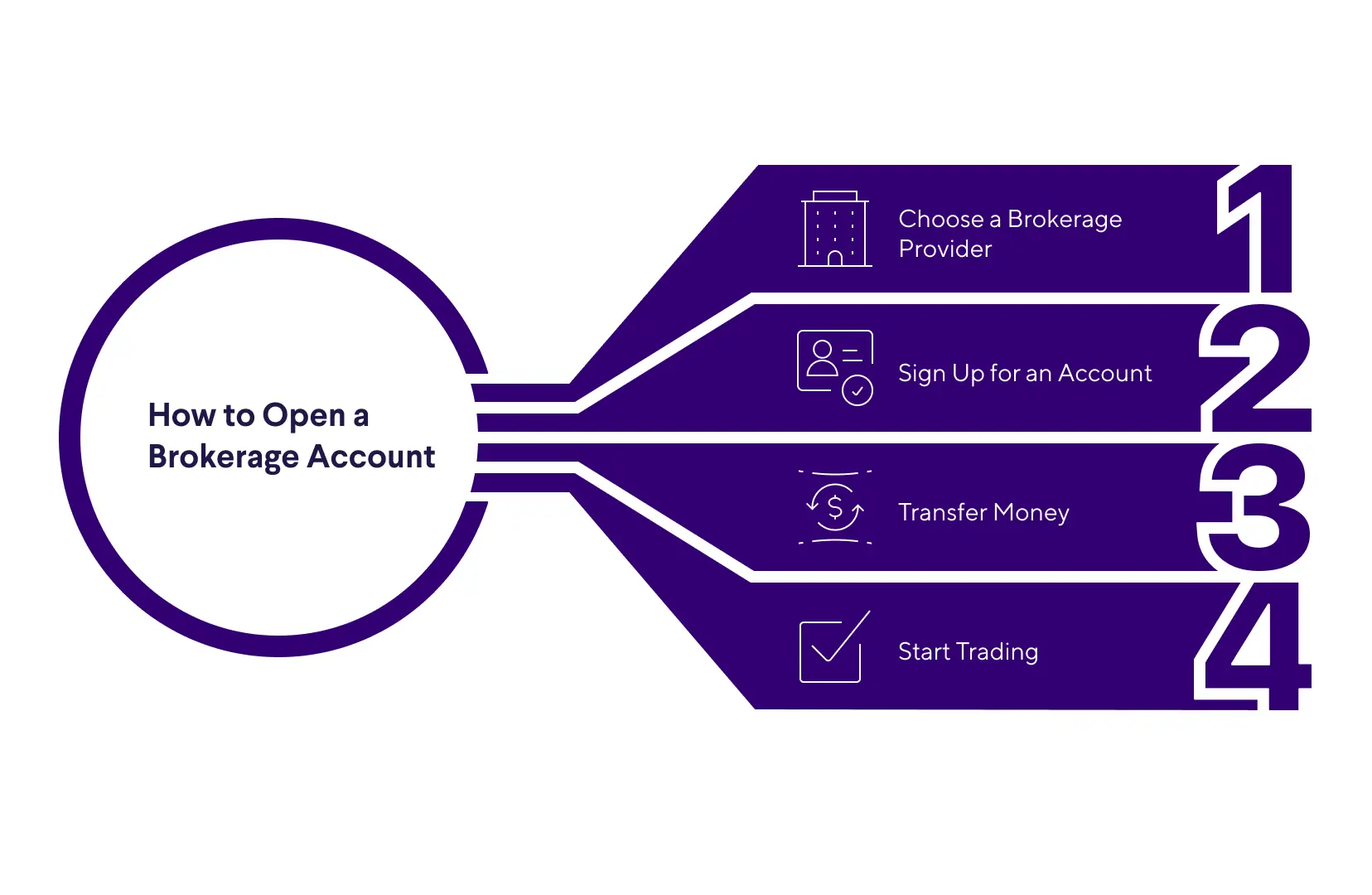Buy to Open vs Buy to Close
Editor's Note: Options are not suitable for all investors. Options involve risks, including substantial risk of loss and the possibility an investor may lose the entire amount invested in a short period of time. Please see the Characteristics and Risks of Standardized Options.
Table of Contents
Buy to open and buy to close are options orders used by traders in order, as the names suggest, to open new options positions or to close existing ones.
Investors use a “buy to open” order to initiate a long call or put option, anticipating that the option price may move in their favor. On the other hand, traders who want to exit an existing short options contract may use a “buy to close” order.
Key Points
• Buy to open establishes a long position and may increase open interest depending on the counterparty.
• High reward potential may accompany a buy to open, especially for calls, but the risk of expiration at zero value is significant.
• Buy to close is the closing transaction for short option positions, which may benefit from time decay, yet carry the risk of loss if prices move adversely.
• An example buy-to-open strategy involves buying a put to open, anticipating a stock decline, and later selling to close the put for more than the premium originally paid.
• Understanding buy to open and buy to close is essential for managing risk and leveraging market movements effectively.
What Is Buy to Open?
“Buy to open” is an order type used in options trading, similar to going long on a stock. In options trading, you can buy to open a call if you expect the price to rise, which is a bullish position, or you may buy to open a put, which is taking a bearish position. Either way, to buy to open is to enter a new options position.
Buying to open is one way to open an options position. (The other is selling to open.) When buying to open, the trader uses either calls or puts and speculates that the option itself will increase in value — that could be a bullish or bearish outlook depending on the option type used. Buying to open sometimes creates a new option contract in the market, so it may increase open interest if the trade is matched with a seller opening a new position.
A trader pays a premium when buying to open. The premium paid, also called a debit, is withdrawn from the trader’s account in a manner that’s similar to buying shares.
Recommended: Popular Options Trading Terminology to Know
Example of Buy to Open
If a trader has a bullish outlook on XYZ stock, they might use a buy to open options strategy. To do that, they’d buy call options. The trader must log in to their brokerage account, and then go to the order screen. When trading options, the trader has the choice of buying to open or selling to open.
Buying to open can use either calls or puts, and it may create a new options contract in the market. As noted earlier, buying to open calls is a bullish position, while buying to open puts is a bearish position.
Let’s assume the trader is bullish and buys 10 call contracts on XYZ stock with an expiration date of January 2025 at a $100 strike price. The order type is “buy to open” and the trader also enters the option’s symbol along with the number of contracts to purchase. Here is what it might look like:
• Underlying stock: XYZ
• Action: Buy to Open
• Contract quantity: 10
• Expiration date: January 2025
• Strike: $100
• Call/Put: Call
• Order type: Market
A trader may use a buy to open options contract as a stand-alone trade or to hedge existing stock or options positions.
Profits can potentially be substantial with buying to open. Going long calls features unlimited upside potential while buying to open puts has a maximum profit when the underlying stock goes all the way to zero. Buying to open options carries the risk that the options will expire worthless, however.
Finally, user-friendly options trading is here.*
Trade options with SoFi Invest on an easy-to-use, intuitively designed online platform.
*Check out the OCC Options Disclosure Document.
What Does Buy to Close Mean?
Buying to close options are used to exit an existing short options position and may reduce the number of contracts in the market. Buying to close is an offsetting trade that covers a short options position. A buy to close order occurs after a trader writes an option.
Writing options involves collecting the option premium — otherwise known as the net credit — while a buy to close order debits an account. The trader is attempting to profit by keeping as much premium as possible between writing the option and buying to close. The process is similar to shorting a stock and then covering.
Example of Buy to Close
Suppose a trader opened a position by writing puts on XYZ stock with a current share price of $100. The trader expected the underlying stock price would remain flat or rise, so they entered a neutral to bullish strategy by selling one options contract. A trader might also sell options when they expect implied volatility will drop.
The puts, with a strike of $100, expiring in one month, brought in a credit of $5 per share (an options contract typically covers 100 shares).
The day before expiration, XYZ stock trades relatively close to the unchanged mark relative to where it was a month ago; shares are $101. The put contract’s value has dropped sharply since the strike price is below the stock price and because there is so little time left until the expiration date. The trader may realize a profit by buying to close at $1 the day before expiration.
The trader sold to open at $5, then bought to close at $1, resulting in a $4 profit per contract ($400 at 100 shares per contract).
Differences Between Buy to Open vs Buy to Close
There are important differences between a buy to open vs. buy to close order. Having a firm grasp of the concepts and order type characteristics is important before you consider trading.
| Buy to Open | Buy to Close |
|---|---|
| Creates a new options position | Closes an existing options contract |
| Establishes a long options position | Covers an existing short options position |
| May offer reward potential | Is typically used after selling an option to close a short position that may have benefitted from time decay |
| Can be used with calls or puts | Can be used with calls or puts |
Understanding Buy to Open and Buy to Close
Let’s dive deeper into the techniques and trading strategies for options when executing buy to open vs. buy to close orders.
Buy to Open Call
Either calls or puts may be used when constructing a buy to open order. With calls, a trader usually has a bullish outlook on the direction of the underlying stock. Sometimes, however, the trader might speculate based on movements in other variables, such as volatility or time decay.
Buying to open later-dated calls while selling to open near-term calls, also known as a calendar spread, is a strategy that may be used to attempt to benefit from time decay and higher implied volatility. Buying to open can be a stand-alone trade or part of a bigger, more complex strategy.
Buy to Open Put
Buying to open a put options contract is a bearish strategy when done in isolation, since profit potential comes from a decline in the underlying stock’s price. A trader commonly uses a protective put strategy when they are long the underlying stock. In that case, buying to open a put is simply designed to protect gains or limit further losses in the underlying stock. This is also known as a hedge.
A speculative trade using puts is when a trader buys to open puts with no other existing position. The trader executes this trade when they anticipate that the stock price will decline. Increases in implied volatility may also benefit the holder of puts after a buy to open order is executed.
Buy to Close
A buy to close order completes a short options trade. It can reduce open interest in the options market whereas buying to open can increase open interest. The trader may profit when buying back the option at less than the price they sold it for.
Buying to close occurs after writing an option. When writing (or selling) an option, the trader seeks to take advantage of time decay. That can be a high-risk strategy when done in isolation — without some other hedging position, there could be major losses. Writing calls has unlimited risk since the stock could theoretically continue to rise, while writing puts has substantial risk as the underlying stock can fall all the way to zero. So, a writer may use a buy-to-close order to close a position and limit losses when the price of stock is moving against them.
Shorting Against the Box
Shorting against the box is a strategy in which a trader has both a long and a short position on the same asset. This strategy may allow a trader to maintain a position, such as being long a stock.
Tax reasons often drive the desire to layer on a bearish options position with an existing bullish equity position. Selling highly appreciated shares can trigger a large tax bill, so a tax-motivated approach does not involve shorting against the box; that strategy is no longer permitted for tax deferral under the Taxpayer Relief Act of 1997, which classifies such offsets as constructive sales. A more common modern alternative is using buy-to-open puts for downside protection. Not all brokerage firms allow this type of transaction. Also, when done incorrectly or if tax rules change, the IRS could determine that the strategy is effectively a sale of the stock that may require capital gains payments and, under current U.S. tax law, entering an offsetting short position is treated as an immediate constructive.
Recommended: Paying Taxes on Stocks: Important Information for Investing
Using Buy to Open or Buy to Close
A trader must decide if they want to go long or short options using puts or calls. Buying to open may generally be used to seek profits from large changes in the underlying stock while selling to open often involves attempting to take advantage of time decay. Traders often place a buy to close order after a sell to open order executes, but they might also wait with the goal of the options potentially expiring worthless.
Another consideration is the risk of a margin call. After writing options contracts, it’s possible that the trader might have to buy to close at a steep loss or be required to liquidate positions by the broker. The broker could also demand more cash or other assets be deposited to satisfy a margin call.
Test your understanding of what you just read.
The Takeaway
Buy to open is a term that describes when an options trader establishes a long position. Buy to close is when a short options position is closed. Understanding the difference between buy to open vs. buy to close is crucial to options trading. These option orders allow traders to put on positions to fit a number of bullish or bearish viewpoints on a security.
SoFi’s options trading platform offers qualified investors the flexibility to pursue income generation, manage risk, and use advanced trading strategies. Investors may buy put and call options or sell covered calls and cash-secured puts to speculate on the price movements of stocks, all through a simple, intuitive interface.
With SoFi Invest® online options trading, there are no contract fees and no commissions. Plus, SoFi offers educational support — including in-app coaching resources, real-time pricing, and other tools to help you make informed decisions, based on your tolerance for risk.
FAQ
What is the difference between buy to open and buy to close options?
Buy to open means a trader enters a new long options position by purchasing a call or put contract. Buy to close means exiting an existing short options position by purchasing it back.
What is the most successful option strategy?
There is no single “most successful” strategy. An options approach’s effectiveness may depend on the market environment, the trader’s outlook, and risk management practices.
Is it better to buy at open or close?
There is no universal rule on whether it’s better to buy options at the market’s open or close. Traders often consider liquidity, volatility, and bid–ask spreads.
Is it better to buy options that are ITM or OTM?
In-the-money (ITM) and out-of-the-money (OTM) options each have trade-offs. ITM contracts cost more but have intrinsic value, while OTM options are cheaper but riskier because they require larger price moves to be profitable.
INVESTMENTS ARE NOT FDIC INSURED • ARE NOT BANK GUARANTEED • MAY LOSE VALUE
For disclosures on SoFi Invest platforms visit SoFi.com/legal. For a full listing of the fees associated with Sofi Invest please view our fee schedule.
Options involve risks, including substantial risk of loss and the possibility an investor may lose the entire amount invested in a short period of time. Before an investor begins trading options they should familiarize themselves with the Characteristics and Risks of Standardized Options . Tax considerations with options transactions are unique, investors should consult with their tax advisor to understand the impact to their taxes.
Utilizing a margin loan is generally considered more appropriate for experienced investors as there are additional costs and risks associated. It is possible to lose more than your initial investment when using margin. Please see SoFi.com/wealth/assets/documents/brokerage-margin-disclosure-statement.pdf for detailed disclosure information.
Disclaimer: The projections or other information regarding the likelihood of various investment outcomes are hypothetical in nature, do not reflect actual investment results, and are not guarantees of future results.
Financial Tips & Strategies: The tips provided on this website are of a general nature and do not take into account your specific objectives, financial situation, and needs. You should always consider their appropriateness given your own circumstances.
Tax Information: This article provides general background information only and is not intended to serve as legal or tax advice or as a substitute for legal counsel. You should consult your own attorney and/or tax advisor if you have a question requiring legal or tax advice.
This article is not intended to be legal advice. Please consult an attorney for advice.
SOIN-Q325-020
Read more




